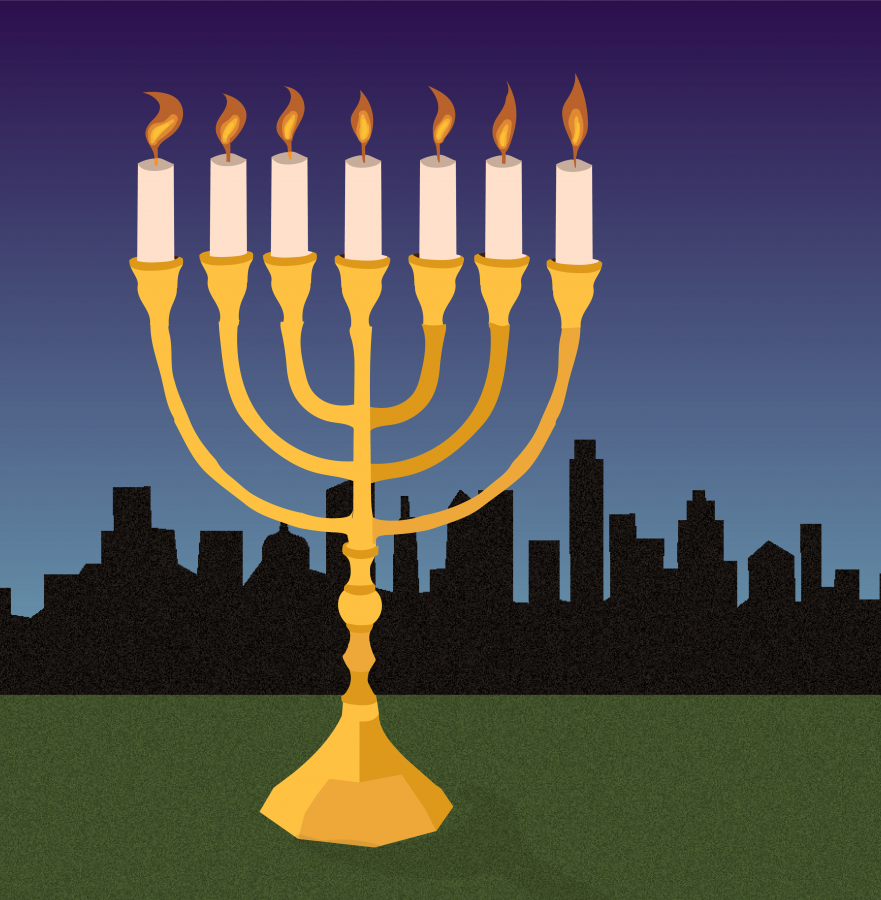From Dec. 2 through Dec. 10, Jewish students across campus celebrate Hanukkah. Hanukkah holds significant historic and cultural significance to the Jewish community, and a key aspect of the holiday is when they light a candelabrum over eight days, called the menorah lighting.
However, candles and any types of open flames are prohibited within Residence Halls at UT. Jewish students are unable to light their menorahs during the holiday season and are left to seek alternative means of expressing their religious beliefs.
University Housing and Dining should work with Jewish student organizations to provide menorahs at Residence Hall front desks or in lobbies as an alternative to prohibited personal ones. Jewish students unable to light their own menorah need access to a menorah they can light to maintain their annual traditions.
In Jewish culture, the nine-branched Hanukkah menorah is an important historic item that signifies the miracle of Jewish triumph. The eight candles represent the eight days the oil lamp stayed burning in the Temple of Jerusalem. Lighting one each day has come to bear cultural significance to Jewish people in America.
On Thursday, Dec. 6, there is a public menorah lighting hosted by Chabad for Jewish students to attend, but it only lasts for one of the eight days of Hanukkah and does not have an option for students to individually light a menorah.
“The one important observance of Hanukkah is the lighting of the menorah. It is the essence of the holiday,” said Naomi Lindstrom, Gale Family Foundation professor in Jewish arts and cultures. “There is a public lighting, but the problem is watching public lighting is not a substitute for lighting a menorah for yourself.”
Lindstrom also stated that there are other ways to light menorahs. Other places such as Israeli hotels have offered menorahs in lobbies as an alternative. Having a lit menorah in a wide open space that can be watched and regulated, such as a Residence Hall lobby, is a satisfactory alternative for Jewish students, Lindstrom said.
Business freshman Dan Meisher celebrates Hanukkah from within his residence hall.
“I think it would be a great option for UHD to offer multiple locations for candle lighting each night,” Meisher said. There would be great benefits to having menorahs within residence halls in addition to the ones offered in Hillel or Chabad Jewish centers, Meisher said.
While UT currently does not offer menorahs at Residence Halls, other large public universities like the University of Missouri have placed menorahs for students to light at Residence Hall front desks. Jewish student organizations at the University of Missouri directed this effort, along with public lighting ceremonies similar to the one UT Chabad has.
Even though lit candles pose a fire hazard when left unmonitored in individual dorms, menorahs are still an important cultural item vital for Jewish students celebrating Hanukkah. To accommodate the Jewish community living on campus, University Housing and Dining can offer a menorah in Residence Hall front desks or lobbies for Jewish students to light. If the University is unable to place menorahs in Residence Halls, Jewish student organizations can instead step up to offer public menorahs for each front desk. University Housing and Dining was unavailable for comment.
The essence of Hanukkah lies in menorah lighting, and providing a safe, public area for menorah lighting would help the UT Jewish community practice their religious traditions.
Mathavan is a business honors freshman from McAllen.





















